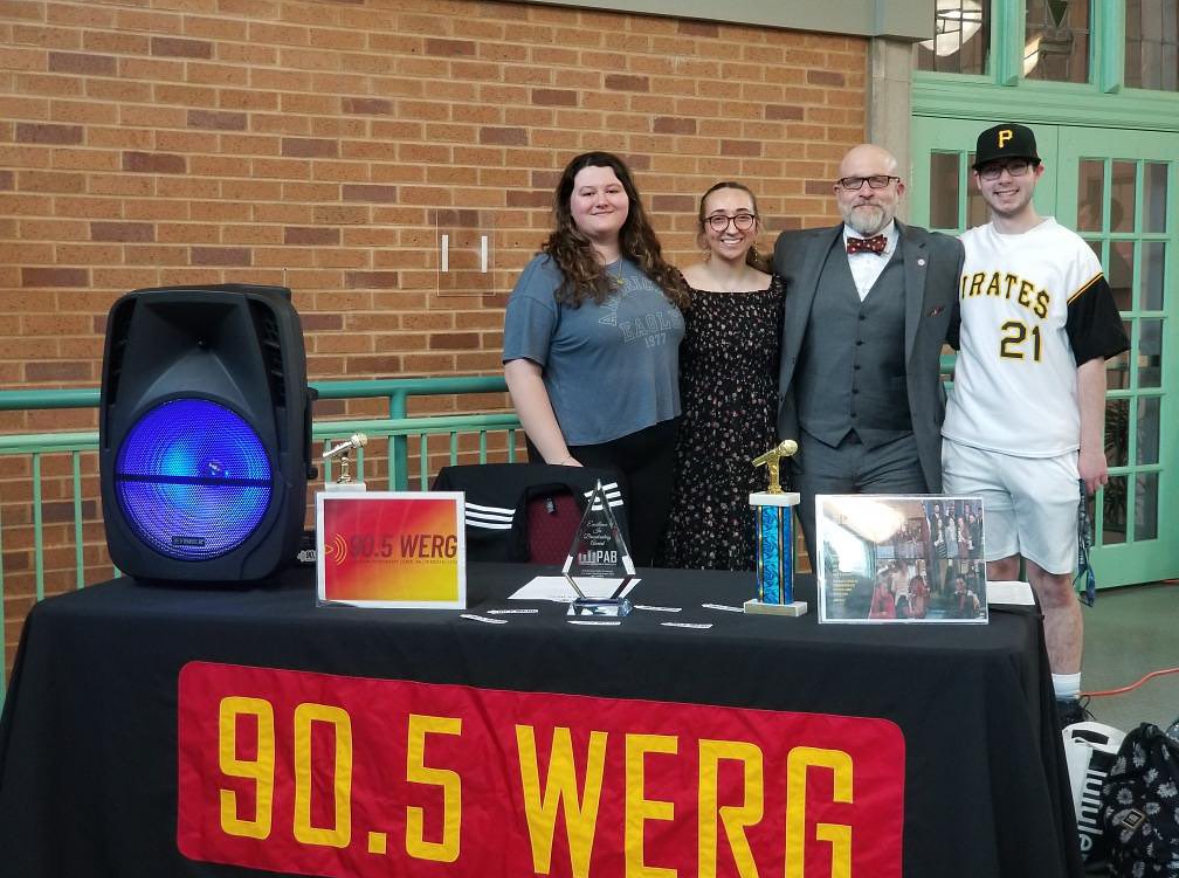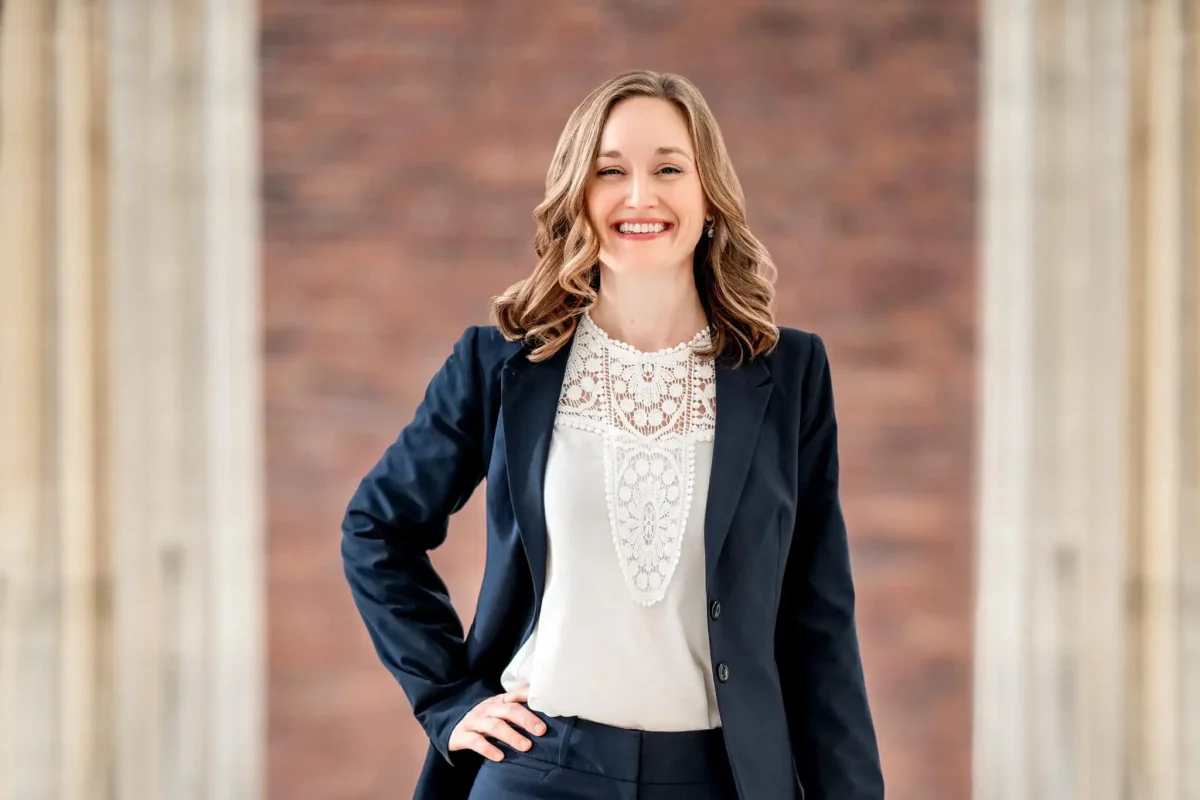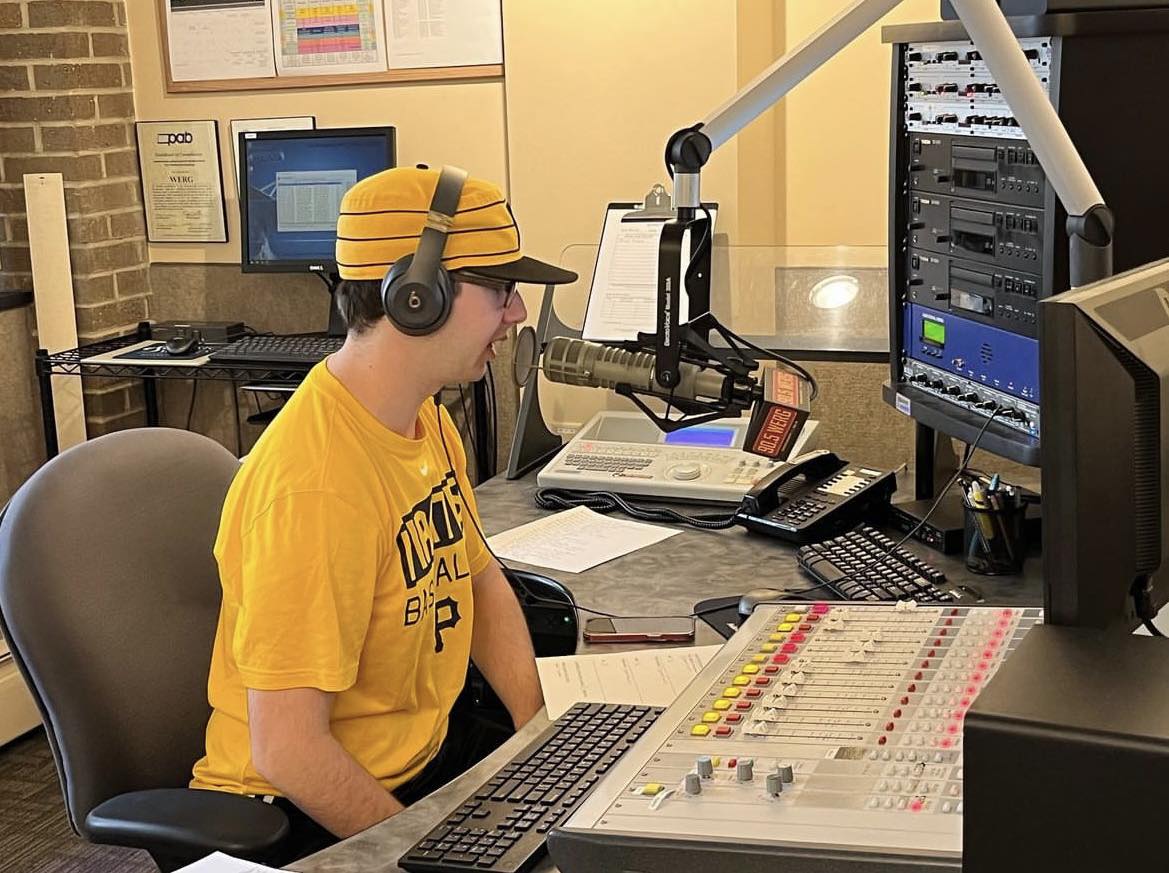Successfully graduating from college with a bachelor’s degree arguably doesn’t yield as many benefits today as it used to. Add to that discouragement the fact that attaining a degree in anything other than a health profession leaves the college graduate with a nagging degree of career uncertainty.
What possible outlets are available to students with a fresh diploma in hand? Well, if that degree happens to be a Bachelor of Arts in English, the student holding it might want to explore getting a Master of Arts in English at Gannon University.
Perhaps jumping right into a chance to increase college loan debt isn’t too attractive, but one might consider applying for the Teaching Assistantship Program that Gannon’s English department offers in conjunction with the English M.A. program.
Anyone who meets the requirements of the M.A. program is eligible to pursue one of five teaching assistantships. Selected students are then given one or two sections of freshman composition per semester to teach.
In addition to gaining valuable teaching experience, students chosen to be teaching assistants have all of their tuition fees waived; plus they receive a “modest” stipend, according to Penny Smith, Ph.D., chair of the English department.
“In effect the teaching assistantships are kind of like scholarships, the kind that don’t need to be paid back,” Smith said. “So for a student who really wants to participate in our master’s program but is looking for a way to pay for it, a teaching assistantship can be a very attractive possibility.”
Smith said the stipend teaching assistants receive is not equal to a university faculty member, but it does supply some fruit for their efforts.
Applying for Gannon’s Master of Arts in English and the Teaching Assistantship Program is a bit different from most universities. Applicants are not required to provide GRE scores with their applications. Katie Chriest, who participated in the program from 2006-2008, said this makes achieving a master’s degree in English at Gannon a little bit more attainable, as opposed to some other universities.
“There wasn’t a GRE; I was able to get right in and get going on it,” Chriest said. “So when you compare it to approaching a different university, it was definitely the easy path.”
Ben Speggen, who took part in the program from 2007-2009, said that his application process was by no means easy or anxiety-free.
“I already knew the people my application would be going to,” Speggen said. “I think I was in a different circumstance than say someone who hadn’t completed their undergrad at Gannon.”
Speggen said he took the GRE because other master’s programs he applied to required it. But he said he felt submitting an application to his professors at Gannon was just as nerve-wracking as thinking about new faces reviewing his graduate application elsewhere.
“It’s stressful either way,” Speggen said. “In other programs you have no idea who’s reading what you’re sending and who you’re talking to and things of that nature.
“But at Gannon, on the other hand, you know who you’re talking to and who’s looking at your materials. You already have built up a relationship with them, so you hope that you’re still able to otherwise impress them at that point to continue your education.”
Not all five of the teaching assistant positions are available each year, however. Rather, in accordance with the two-year M.A. program, the number of first-year teaching assistants to those in their second year varies from year to year, according to Smith.
Smith said that while teaching experience is not explicitly necessary to be chosen for a teaching assistant position, applicants who eventually get accepted into the program tend to have some exposure to teaching.
“If all other things are equal, someone with, say, a writing center background is just better qualified,” Smith said.
Jose Otero, a teaching assistant from 2005-2007, said he entered the program having some teaching experience both through student-teaching practicum as an undergraduate and by teaching eighth-grade English at a high school after completing his bachelor’s.
Chriest said she had some teaching experience from her time as a summer camp counselor but not in a traditional classroom setting.
Catherine Amick, a teaching assistant from 2003-2005, said she had no teaching experience before entering the program.
“But I quickly fell in love with teaching once I was enrolled,” Amick said.
Given the varying backgrounds of applicants, Laura Rutland, Ph.D., faculty adviser to the teaching assistants, acknowledged that not every student who applies for the M.A. in English and the teaching assistantship all have the same undergraduate English degree in hand. Fortunately, according to her, Gannon’s English department provides several courses that can fill in the gaps.
“Our program covers all of the areas of English studies, so that if someone is in that situation, they can get a good foundation before they go on for other kinds of work,” Rutland said.
Pat Doyle, currently in his second and final year as a teaching assistant, didn’t apply for the graduate program and the teaching assistantship with a B.A. in English on record. Instead, he earned a Bachelor of Fine Arts in Creative Writing from Penn State Behrend. Although he said pursuing a Master’s in Fine Arts was the next logical step, he felt Gannon’s M.A. program was a better fit for him.
“This was really unfamiliar territory because I had never taken a linguistics or rhetoric class, and I’m taking a lot of lit classes now that I would not have taken in an MFA program,” Doyle said. “This one is more traditional, more structured, but it focuses very much on the teaching aspects, and you get a lot of that in the actual graduate courses you take.
Doyle called the program a “good fit” because he thinks it has provided the best opportunity for him to be a better teacher.
Once accepted into the program, teaching assistants work with members of the English department to prepare to step into the classroom. Rutland organizes several workshops at the beginning of the fall semester to introduce the freshman writing curriculum, discuss methods to teach that curriculum and provide some last-minute training before the teaching assistants enter their classrooms for the first time.
Rutland said that though she likes to observe her teaching assistants in class occasionally, she said she is rather hands-off in letting them teach how they want.
“Most of our people do pretty well without me hovering over them,” Rutland said. “I’m here for them if they need me, and they come to me if they need help; it works pretty well.”
Smith said she didn’t think the Teaching Assistantship Program was that much different from various teaching experience available at the graduate level from other universities.
“Honestly, I don’t think the program is particularly unique in the sense that there are other colleges and universities that make teaching assistantships available at the master’s level,” Smith said. “I would say the majority of those provide some training. I think we provide especially good support, though, for teaching assistants, which may not characterize other colleges and universities.”
Speggen said he chose to apply for the program because he thought it contained plenty of opportunities to gain some valuable teaching experience at the graduate level that other programs might not offer.
“At other universities there’s multiple levels of assistantship,” Speggen said. “So teaching assistants might more be in the role of grading papers or proctoring exams or doing office work, where you’re not actually developing the course yourself regarding lesson plans and things of that nature.
“But at Gannon, it puts you right in the classroom and gives you that experience. You’re able to teach, you’re able to run the class as long as you’re filling the course objectives how you wish to run it. There’s a lot of guidance from the program, but there’s also a lot of trust that you’re able to do that.”
Chriest said that her teaching skills markedly improved because the teaching assistantship gave her freedom to teach how she wanted.
“I was really able to be creative,” Chriest said. “If I was just listening to the news or saw a film or something that inspired me, I felt like I had the freedom to share that with students. I really liked that freedom.”
Otero said the teaching experience he gained while in the program drove him to realize that teaching was what he wanted to continue doing.
“Teaching at Gannon was a great experience, and experience is crucial to developing any real teaching skill,” Otero said. “The theories you learn in school are great, but it’s in the classroom where you discover if you are cut out for the profession.”
Though teaching at the college level is a challenge in itself, teaching assistants still must not neglect their responsibilities as graduate students in the M.A. program. Doyle said that sometimes the balance of teaching one or two classes plus striving to bring home a master’s degree sometimes seems “insurmountable.”
“It gets easier as you go along because you get used to it, but definitely having to juggle grading papers and writing your own paper in the same week, it’s part of the job,” Doyle said.
According to Doyle, the most successful teaching assistants are those who practice flawless time-management skills.
“If you don’t know how to manage your time, you’re going to have a tough time in the program,” Doyle said. “I have a lot of ‘free time’ to myself, but that’s time that I have to say, ‘Well, I’m going to take five hours and write a paper, write three pages of it, or I’m going to read.’
“But then you have to ration out the rest of the time to grading papers and planning lessons, things like that. It’s a lot of work.”
Despite its challenges, the graduate course load coupled with teaching does help sharpen a teaching assistant’s knowledge and skills, both in teaching and in their own work, according to Amick.
“It helped me build critical thinking, research, writing and teaching skills, all of which have made a positive impact on me personally and professionally,” Amick said.
Speggen agreed and added that his time spent in the program helped mature him.
“It’s a demanding program; you do a lot of reading, a lot of thinking,” Speggen said. “Especially by teaching writing, I think you get better at it. That’s one of the things I’d say is the most helpful.
“So for me it helped me become a more mature thinker; that’s really what I needed. I needed to develop myself and develop my style.”
Smith said that in addition to their different backgrounds, the teaching assistants all have different opinions regarding the subject of real-world experience. Some have entered the Teaching Assistantship Program right after completing their undergraduate degrees, while others have sought real-world experience before returning to school and then achieving a master’s.
Rutland said the backgrounds of the applicants vary, because each teaching assistant enters the program at a different stage of his or her life.
“Some people pretty clearly know why they’re doing this or it gives them time for reflection on the next step,” Rutland said. “I think it really depends on the individual person, and we have good people from both situations.”
Speggen enrolled in the M.A. program right after finishing his undergraduate years, and he said his love for Gannon’s English department gave him no pause when considering whether he would continue to get his M.A. then or later.
“Certainly some people would say go experience the world, see what it has to offer then go to it and get it,” Speggen said. “I don’t know if there’s ever a perfect time for anything like that; that this is the ‘best time’ in your life to do something.
“You should just go with what feels right at the time. That felt right for me. I knew I wanted to do something and I knew I wanted to continue my education, so it felt right and I got into the program and that worked for me.”
Doyle spent several years working for Verizon’s customer service department after completing his undergraduate degree, and though he said he was “disillusioned” by the corporate life and knew it wasn’t right for him, he said gaining that real-world experience first was the best route in his case.
“Without a doubt I’m glad I did it,” Doyle said. “Having that experience helped me learn to interact with and deal with people, especially in escalated situations.
“It’s bound to happen when you’re a teacher; you’re going to have to face people who aren’t necessarily happy. The experience I had in the corporate world was beneficial in that regard.”
Just as their backgrounds coming into the Teaching Assistantship Program are never identical, the futures of the teaching assistants are just as variable, according to Smith.
“Most of the teaching assistants tend to take one of several paths,” Smith said. “One is either to continue or begin high school teaching and the other is to move on to a doctoral program. Another path is that many of the T.A.s stay on here as adjunct faculty.”
Speggen currently serves as an adjunct in Gannon’s English department, and he teaches freshman composition and a literature course. He said he’s glad he didn’t pursue a high school teaching career and prefers the maturity of college teaching much better.
“Certainly it’s nice to interact with adults; that’s one of the major differences when you’re teaching at college,” Speggen said. “So it’s nice because you can have more advanced discussion with them and a more advanced approach to things that you wouldn’t have at a middle or high school level. So for me, it’s personally more fun; it’s a more enriching experience when I’m doing something like that.”
Chriest spent some time as an adjunct at Gannon before moving on to adjunct at Mercyhurst College. She said that while Gannon was not the right fit for her in regards to teaching, she’s very appreciative of what she learned during her time as a teaching assistant.
“I’m able to adjunct and that’s about as far as I want to take it at least for now,” Chriest said. “It’s really given me the opportunity to get a clear view of what academia is and to know that I don’t want to spend the next 10 years of my life jumping through hoops to get a job that doesn’t pay me enough, when I can do what I like to do, which is just teach students.
“So that, I think, has been the most comforting thing: it stopped me from wondering ‘OK, do I want to do this with my life?’”
Amick now works for Erie Insurance, but she also does some volunteer teaching on the side. She said her time as a teaching assistant really helped her discover where her creativity meets business.
“I developed a strong affinity for the space where creativity, technology and communications meet while I was a student at Gannon, and it’s an interest that will most likely be with me for a long time,” Amick said.
Otero was hired for a teaching position at Mercyhurst-North East, which he held for several years before taking a job at Western Governors University in Utah. He was recently hired at Gannon as the Coordinator of Tutorial Services and Supplemental Instruction. Otero said his time at Gannon helped better his teaching skills for future career opportunities.
“The experience teaching at Gannon helped me get the position at Mercyhurst and put me on the track of teaching on the college level,” Otero said. “I feel that I received a good education at Gannon. It is a small program where students are supported by the faculty and encouraged to explore, question and create. I would certainly recommend that prospective students apply to the program.”
Though Doyle is still unsure of exactly where the Teaching Assistantship program will take him, as he enters his final semester he has a pretty good grasp of what kind of new experiences he would like to explore.
“At this point, I’m thinking of looking at the community college circuit around the country to see if I can get my foot in the door,” Doyle said. “I think I’m going to take a few years off to teach and work like I did after my undergrad and think about the Ph.D. down the road.
“I like taking some time off to really explore myself and, going right into a Ph.D., I think there might be some really valuable experience out there by actually teaching that I’d be missing out on by going straight into a Ph.D. program.”







